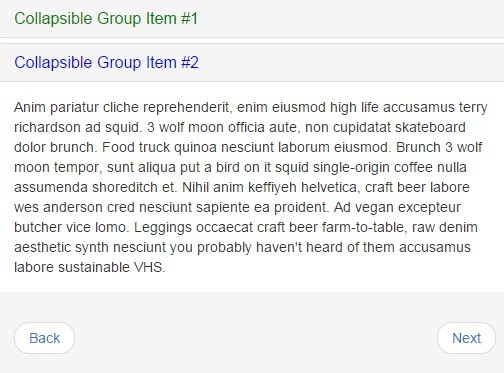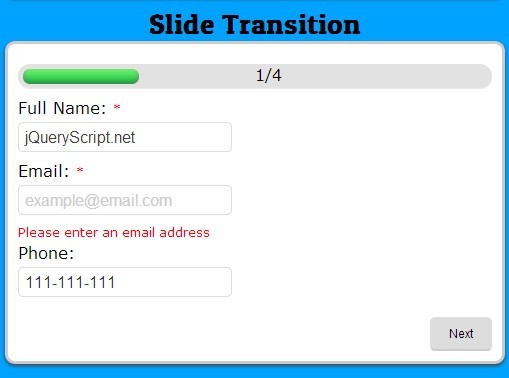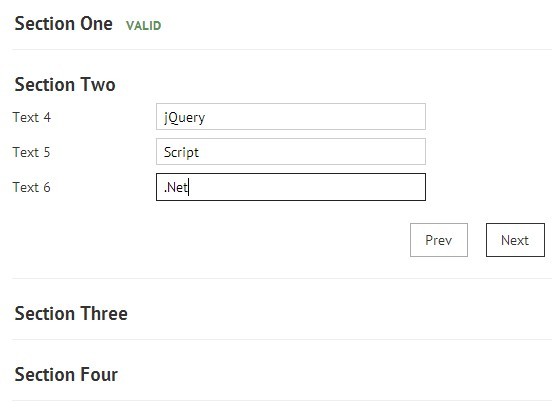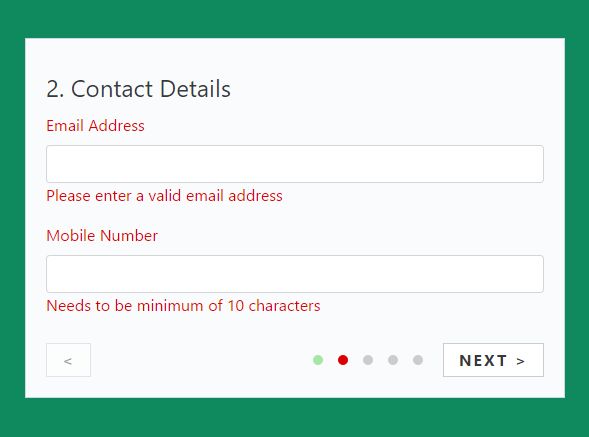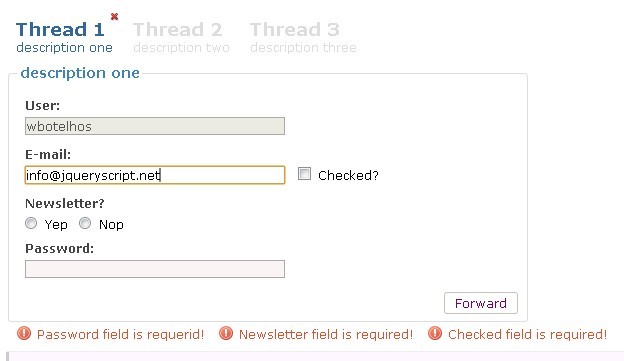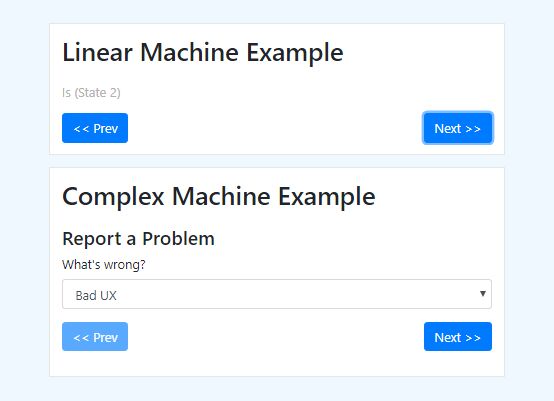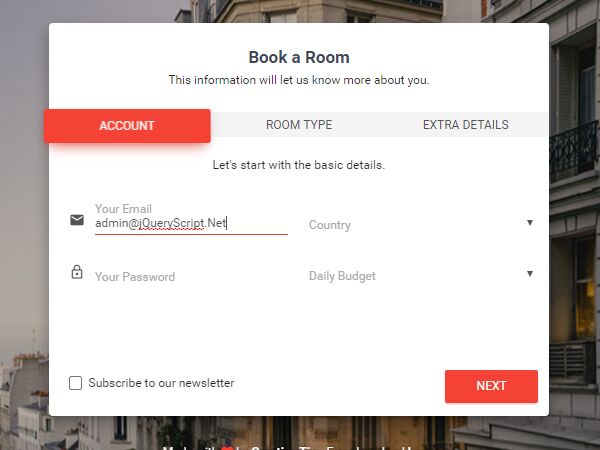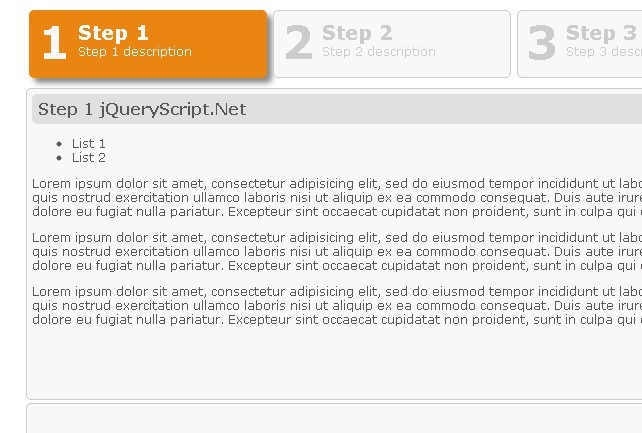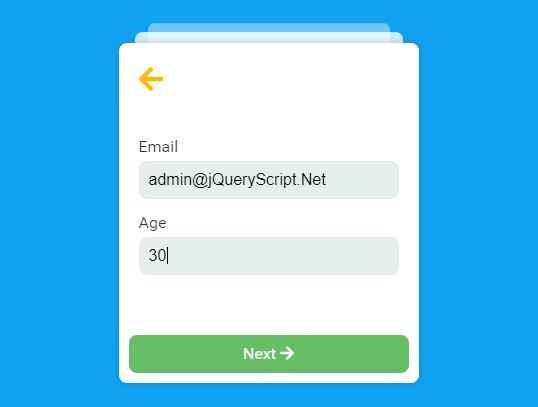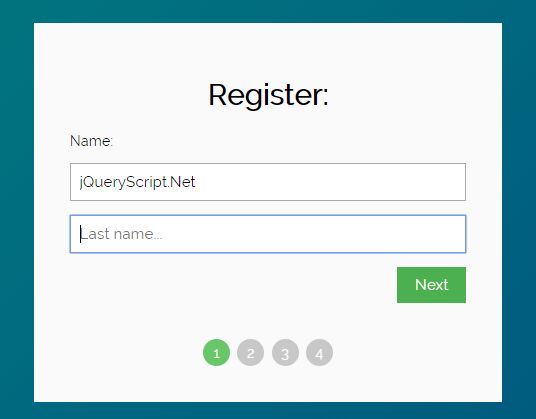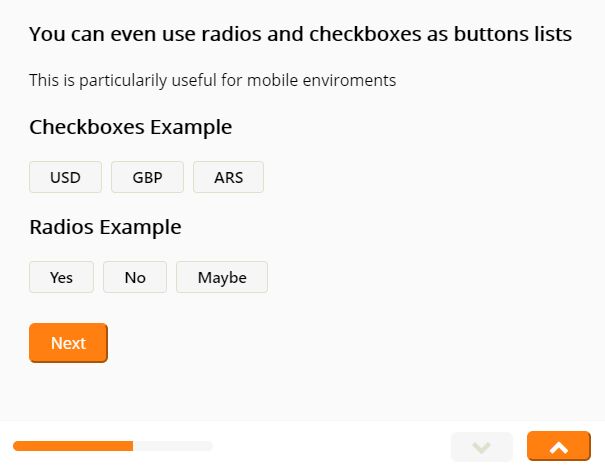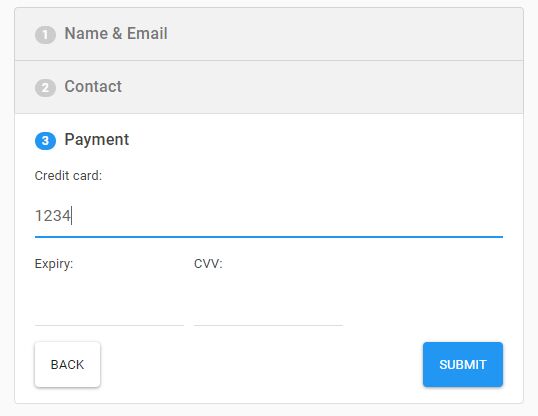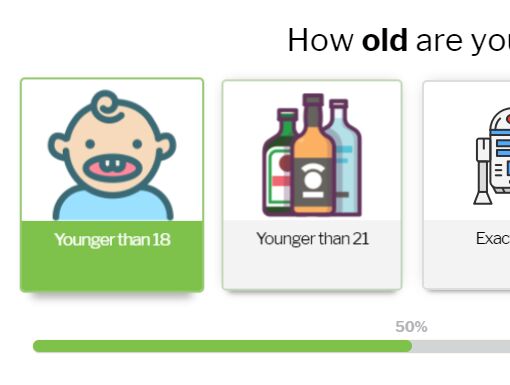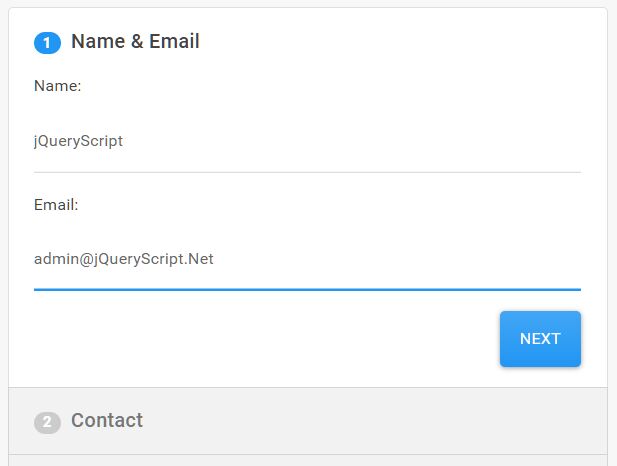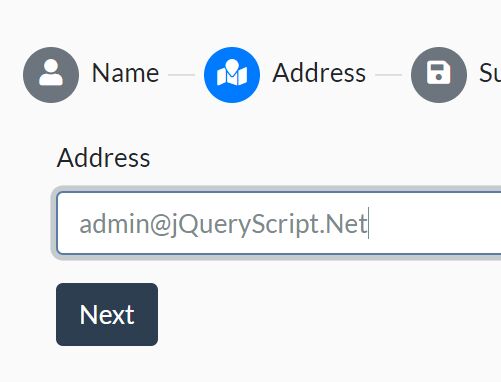jQuery wizard 



A jquery plugin for creating step-by-step wizards.
Table of contents
- Main files
- Quick start
- Requirements
- Usage
- Examples
- Options
- Methods
- Events
- No conflict
- Browser support
- Contributing
- Development
- Changelog
- Copyright and license
Main files
dist/ ├── jquery-wizard.js ├── jquery-wizard.es.js ├── jquery-wizard.min.js └── css/ ├── wizard.css └── wizard.min.css Quick start
Several quick start options are available:
Download the latest build
- Development - unminified
- Production - minified
Install From Bower
bower install jquery-wizard.js --saveInstall From Npm
npm install jquery-wizard --saveInstall From Yarn
yarn add jquery-wizardBuild From Source
If you want build from source:
git clone [email protected]:amazingSurge/jquery-wizard.git cd jquery-wizard npm install npm install -g gulp-cli babel-cli gulp buildDone!
Requirements
jquery-wizard requires the latest version of jQuery.
Usage
Including files:
<link rel="stylesheet" href="/path/to/wizard.css"> <script src="/path/to/jquery.js"></script> <script src="/path/to/jquery-wizard.js"></script>Required HTML structure
<div class="wizard"> <ul class="wizard-steps" role="tablist"> <li class="active" role="tab"> Step 1 </li> <li role="tab"> Step 2 </li> <li role="tab"> Step 3 </li> </ul> <div class="wizard-content"> <div class="wizard-pane active" role="tabpanel">Step Content 1</div> <div class="wizard-pane" role="tabpanel">Step Content 2</div> <div class="wizard-pane" role="tabpanel">Step Content 3</div> </div> </div>Initialization
All you need to do is call the plugin on the element:
jQuery(function($) { $('.example').wizard(); });Examples
There are some example usages that you can look at to get started. They can be found in the examples folder.
Options
jquery-wizard can accept an options object to alter the way it behaves. You can see the default options by call $.wizard.setDefaults(). The structure of an options object is as follows:
{ step: '.wizard-steps > li', getPane: function(index, step) { return this.$element.find('.wizard-content').children().eq(index); }, buttonsAppendTo: 'this', templates: { buttons: function() { const options = this.options; return `<div class="wizard-buttons"><a class="wizard-back" href="#${this.id}" data-wizard="back" role="button">${options.buttonLabels.back}</a><a class="wizard-next" href="#${this.id}" data-wizard="next" role="button">${options.buttonLabels.next}</a><a class="wizard-finish" href="#${this.id}" data-wizard="finish" role="button">${options.buttonLabels.finish}</a></div>`; } }, classes: { step: { done: 'done', error: 'error', active: 'current', disabled: 'disabled', activing: 'activing', loading: 'loading' }, pane: { active: 'active', activing: 'activing' }, button: { hide: 'hide', disabled: 'disabled' } }, autoFocus: true, keyboard: true, enableWhenVisited: false, buttonLabels: { next: 'Next', back: 'Back', finish: 'Finish' }, loading: { show: function(step) { }, hide: function(step) { }, fail: function(step) { } }, cacheContent: false, validator: function(step) { return true; }, onInit: null, onNext: null, onBack: null, onReset: null, onBeforeShow: null, onAfterShow: null, onBeforeHide: null, onAfterHide: null, onBeforeLoad: null, onAfterLoad: null, onBeforeChange: null, onAfterChange: null, onStateChange: null, onFinish: null } Methods
Methods are called on wizard instances through the wizard method itself. You can also save the instances to variable for further use.
// call directly $().wizard('goTo', 0); // or var api = $().data('wizard'); api.goTo(0);goTo(index)
Go to the specifc step.
// go to the first step $().wizard('goTo', 0); // move to 50% $().wizard('moveTo', '50%');length()
Get the steps length.
$().wizard('length');get(index)
Get the step instance further use.
// get the second step instance var step = $().wizard('get', 1);current()
Get the current shown step instance
var step = $().wizard('current');currentIndex()
Get the current shown step index
var index = $().wizard('currentIndex');lastIndex()
Get the last index
var index = $().wizard('lastIndex');next()
Go to the next step
$().wizard('next');back()
Go back to the previous step
$().wizard('back');first()
Go back to the first step
$().wizard('first');finish()
Finish the wizard when the current step is the last one
$().wizard('finish');reset()
Reset the wizard.
$().wizard('reset');destroy()
Destroy the wizard instance.
$().wizard('destroy');Events
jquery-wizard provides custom events for the plugin’s unique actions.
$('.the-element').on('wizard::ready', function (e) { // on instance ready }); | Event | Description |
|---|---|
| init | Fires when the instance is setup for the first time. |
| ready | Fires when the instance is ready for API use. |
| next | Fired when the next instance method has been called. |
| back | Fired when the back instance method has been called. |
| reset | Fired when the reset instance method has been called. |
| beforeChange | This event is fired before the step change. |
| afterChange | This event is fired after the step change. |
| finish | Fires when the wizard is finished. |
| destroy | Fires when an instance is destroyed. |
No conflict
If you have to use other plugin with the same namespace, just call the $.wizard.noConflict method to revert to it.
<script src="other-plugin.js"></script> <script src="jquery-wizard.js"></script> <script> $.wizard.noConflict(); // Code that uses other plugin's "$().wizard" can follow here. </script>Browser support
Tested on all major browsers.
 |  |  |  |  |  |
|---|---|---|---|---|---|
| Latest ✓ | Latest ✓ | Latest ✓ | Latest ✓ | 9-11 ✓ | Latest ✓ |
As a jQuery plugin, you also need to see the jQuery Browser Support.
Contributing
Anyone and everyone is welcome to contribute. Please take a moment to review the guidelines for contributing. Make sure you're using the latest version of jquery-wizard before submitting an issue. There are several ways to help out:
- Bug reports
- Feature requests
- Pull requests
- Write test cases for open bug issues
- Contribute to the documentation
Development
jquery-wizard is built modularly and uses Gulp as a build system to build its distributable files. To install the necessary dependencies for the build system, please run:
npm install -g gulp npm install -g babel-cli npm installThen you can generate new distributable files from the sources, using:
gulp build More gulp tasks can be found here.
Changelog
To see the list of recent changes, see Releases section.
Copyright and license
Copyright (C) 2016 amazingSurge.
Licensed under the LGPL license.
